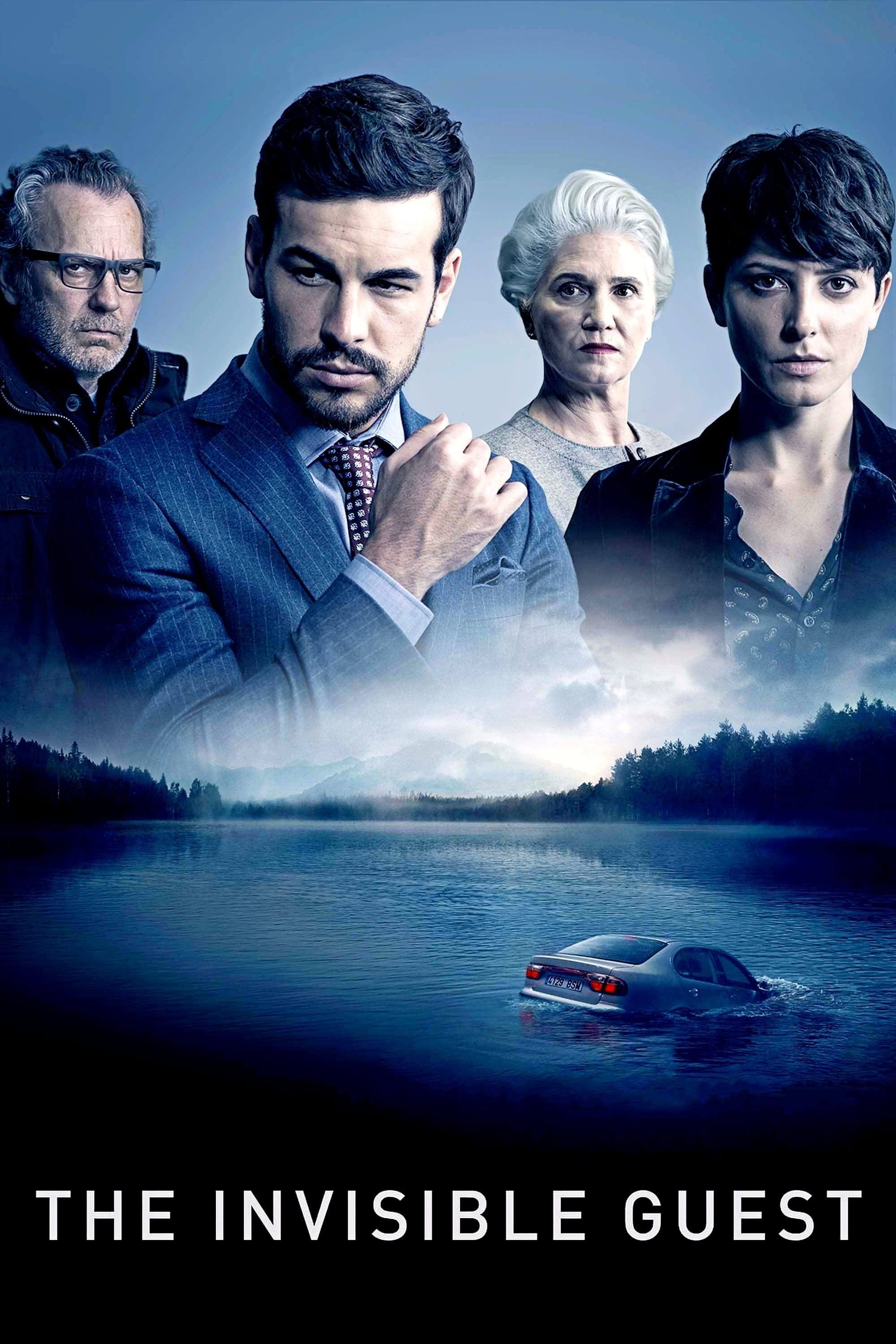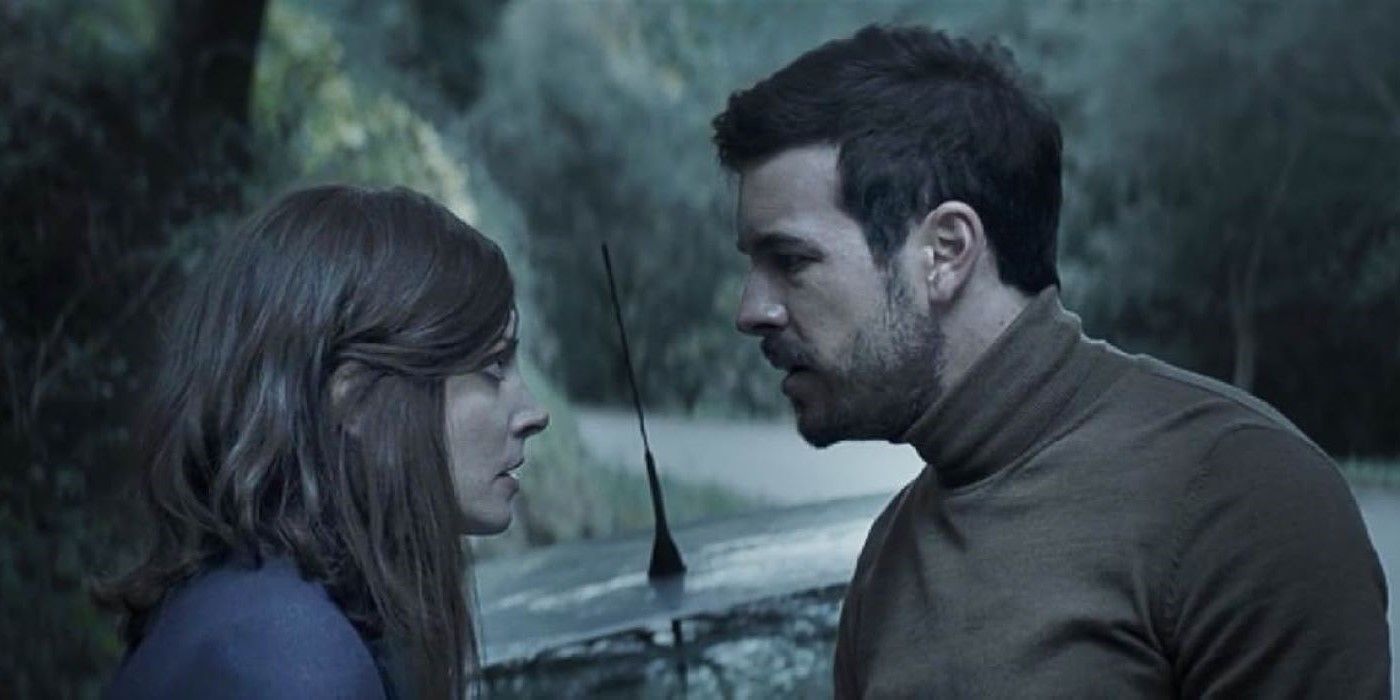This Criminally Underrated Thriller Masterfully Weaves an Intricate and Deeply Satisfying Murder Mystery

Nothing reels you in quite like a locked-room mystery. Throw in a web of lies, deceit, and a race against time, then you’ve got something that truly keeps viewers on the edges of their seats. In a nutshell, that’s what The Invisible Guest — or Contratiempo in its original Spanish title — delivers. Directed by Oriol Paulo, the master of layered and intricate storytelling, the film promises to be a murder mystery. However, it doesn’t just stop there, it dives into puzzling realms and creates a narrative where every single piece counts. At the center of it all is Adrian Doria (Mario Casas), a not-so-shabby businessman who’s found locked in a hotel room with the lifeless body of his lover, Laura Vidal (Bárbara Lennie). All fingers are pointed at him considering the damning evidence of a sealed room with no extra entry/exit points.
That’s where razor-sharp defense attorney, Virginia Goodman (Ana Wagener) comes in. Using her talent for dismantling lies, she chips away at Adrian’s version of the truth and in the process kicks off a high-stakes cat-and-mouse chase. Using an expertly patched-together set of flashbacks, shifting perspectives, and red herrings, The Invisible Guest proves that a good mystery isn’t just about finding out who did it, but figuring out who’s lying.
How ‘The Invisible Guest’ Capitalizes on a Web of Secrets and Expert Storytelling
Your run-of-the-mill murder mystery reveals the truth, The Invisible Guest, on the other hand, makes you work for it. In Paulo’s usual fashion, right at the moment when viewers think they’ve cracked the case, the movie flips the script… again. The Invisible Guest wastes little to no time reeling you into its intricately spun web. From the very first moment, there’s the locked room set up, but that’s just the tip of the iceberg as Wagener’s Virginia Goodman claws away at Adrian’s story. The fascinating thing is how it’s not simply about what transpired but about how each revelation leads further into a maze of lies and unexpected plot twists.
A standout moment comes in the form of the fateful car accident that changes everything. While driving through a snow-covered area, Adrian and Laura end up hitting a young man’s car. Unfortunately, the entire ordeal ends in his death. Then, panic sets in and instead of reporting things to the authorities, they cover up the accident. Unexpectedly, another driver happens on the scene of the accident, leading Adrian and Laura to pretend to be exchanging insurance information. However, from this point on, the story spirals as Adrian hides the victim’s car and body in a lake. Later, a local automotive engineer, Tomas Garrido (José Coronado), offers to help Laura repair the damaged vehicle — Adrian’s car, but in a shocking twist, Tomas happens to be the actual victim’s father. The tension in these scenes is nothing short of electric and creates the perfect cocktail of guilt, revenge, and betrayal. In a nutshell, this is how the film delivers reveals within reveals that are everything but linear or one-note.
The Thin Moral Lines in ‘The Invisible Guest’ Make for an Unforgettable Narrative
One of the most fascinating things about The Invisible Guest is how quickly morality becomes a moving target. In this film, no character walks away unaffected by the myriad of choices they make as the story runs its course. It all begins with the central characters, Adrian Doria and Laura Vidal, whose situation kicks off a string of ethically questionable decisions. It’s made clear early on that the moral compass between the couple is weak, from their affair to their calculated self-preservation at the accident scene. But it’s not just the hit-and-run that muddies the waters, there’s Adrian’s penchant for lying and manipulating everyone around him in a bid to control all versions of the truth. The combination of their questionable judgment ripples outwards which ends up pulling other characters, like Tomas Garrido and his grieving wife into their web of lies.
Even the moral compass of the film, defense attorney Virginia Goodman, operates in gray areas, laying psychological traps to coax the truth out of Adrian. At the end of the day, The Invisible Guest proves it’s more of a mystery as it weaves a tale that challenges viewers to consider how far they’d go when their backs are against the wall.
‘The Invisible Guest’ Revives Classic Mysteries With a Modern Bite
If The Invisible Guest feels strangely familiar, it’s because Oriol Paulo knows his way around the mystery blueprint as a whole. The film boldly leans into its genre influences — from Agatha Christie’s tendency to misdirect to Alfred Hitchcock’s penchant for sleight-of-hand. But instead of taking the easy route and full-on mimicking these classics, The Invisible Guest updates them for a modern audience. To that effect, it’s faster, sharper, and less patient with predictable plotlines. Take the locked-room setup, for instance; it’s a well-worn trope that’s been used through the ages to make a murder seem impossible because the crime scene is inaccessible. Typically, in older murder mysteries, the trope is the entire puzzle, but in The Invisible Guest, it’s just the beginning of a whole lot of chaos. Sure, the sealed room is a conundrum, but the film does its best not to dwell on the logistics; instead, it turns it into some sort of narrative weapon. The impossibility pushes the lead character to come undone under the weight of his own lies.
What really sells the plot, ultimately giving the film its modern bite, is the way it handles the concepts of truth and time. Instead of giving viewers one reliable narrator or, at the very least, a steady linear timeline, the story folds in on itself with conflicting accounts, flashbacks, and mental rewrites. The result isn’t just the spectacle of a mystery unfolding, but audiences are forced to actively try to piece together the rules of the game. This kind of narrative manipulation is more in line with the psychological thrillers of the 2000s than the neat resolutions of older whodunnits. Then there’s the tone. It’s common for classic murder mysteries to play with elements like decorum and quiet deduction. However, Paulo’s approach is all tension and urgency. Unlike older stories where justice feels inevitable, The Invisible Guest is one of those films that makes you wonder whether anyone will ultimately pay the price for the crimes committed. In a nutshell, the movie clearly respects tradition, but it doesn’t wrap itself in it. Instead, it cleverly borrows just enough from the classics to feel familiar but sharpens the narrative to deliver something entirely new.

- Release Date
-
January 6, 2017
- Runtime
-
106 Minutes
- Director
-
Oriol Paulo
- Writers
-
Oriol Paulo, Lara Sendim







